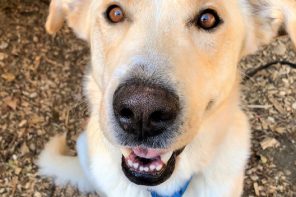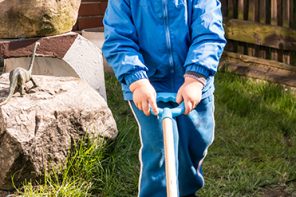Even if you don’t immediately recognize the name of Tarrytown native David Bromberg, you’ve undoubtedly heard him play on albums by Carly Simon, Bob Dylan, Phoebe Snow, Ringo Starr, John Prine, Jerry Jeff Walker, Gordon Lightfoot, Richie Havens, The Eagles and Willie Nelson, to name just a few. A multi-instrumentalist across various genres, as well as a singer and songwriter, Bromberg — who has released 19 studio albums, including his first in 1971 — has returned this year with “Big Road” (Red House), credited to the David Bromberg Band. Bromberg was kind enough to answer a few questions shortly after his 75th birthday:
David, I’d like to begin by wishing you belated happy 75th birthday. Was it an epic celebration?
“It kind of was. It was the first time in six months that my band and I got to play together. We were all jonesing for being able to play together. We did an online concert that had many more viewers than we expected. It was a wonderful thing that we got to do.”
Being both a songwriter and an interpreter of other people’s songs, what was involved in your song selection process of the 12 covers – which includes the three in the medley – that you recorded on your new album “Big Road”?
“I just record things that I’ve wanted to sing for a long time. (They are) usually the things I have been singing.”
As in the songs you’ve been singing in concert, for example?
“Yes.”
“Big Road” also features a pair of original tunes, “George, Merle & Conway,” and “Diamond Lil.” How would you say that your songwriting has evolved over the years?
“You can kind of hear it right there. Because “Diamond Lil,” I wrote quite a long time ago and recorded it back then. “George, Merle & Conway” is the most recent thing I had written at the time we recorded. But, as for what I would say about it, I don’t do that kind of thing [laughs]. I don’t look back.”
I love the sense of humor in “George, Merle & Conway.” I also appreciate that it is a song that honors singers and songwriters. Did you ever have the good fortune to cross paths with George Jones, Merle Haggard or Conway Twitty?
“No. I got to play with Waylon Jennings, (who was also) Buddy Holly’s former bass player (in The Crickets). I sat in with his band once. It was fun.”
Having the DVD with the performances and mini documentary included with the CD is such a pleasure, especially in these days of the pandemic when experiencing live music is on hold. Why did you decide to include a DVD in the set?
“A lot of it had to do with the song ‘Roll On John,’ which we used to do, and probably still will when we get to performing it, as an encore. We would do it standing in front of the mics. That was very important to it. Because doing that would illustrate that that was us actually singing. There’s a thing about when you have a sound system in the middle, it doesn’t really register that this is flesh and bones. These are some people I could talk to doing this. The closest I could come to recording it so it would show that same thing, would be doing it in a video.”
It’s very effective. In the mini doc, musician and producer Larry Campbell describes you as “Americana when Americana wasn’t cool.”
(Bromberg laughs.)
What does it mean to you that Americana has been embraced by music lovers in the way that it has?
“First of all, I’m still not included. The Americana thing is a form of country music. The thing with different styles of music is I’ve always ignored them. I do what the hell I want. But if you don’t swear allegiance to that form of music, you couldn’t possibly know anything about it and you’re not considered one of those performers.”
So instead of honoring your versatility they kind of shut you out?
“They didn’t shut me out. Maybe (they think) I’m too old. I don’t know. I just don’t fit into their thing. I’m a member of the Americana thing, because I want to be. It’s not because they want me to be.”
Because you started as a sideman – you even have a 1990 album titled “Sideman Serenade” – does that mean you have a special kind of respect for sidemen, including the members of your own band?
“Absolutely. I miss being a sideman. I mean it’s really wonderful to be an accompanist. One of the things about (musician and ‘Big Road’ producer) Larry Campbell, he’s about as good as it gets. There’s a couple of others. I really like Nina Gerber. She’s really spectacular. She’s on the West Coast, so East Coast people may not know her as much, but she’s really amazing.”
You grew up in Tarrytown and I was wondering if that was where your interest in music began, perhaps in school or with like-minded friends?
“Yes. It didn’t begin in school at all. But I did have a friend or two that were interested in the same thing. There weren’t many of us. I haunted the record store. For some reason I taped my LPs. I was one of those nerds who brings his guitar everywhere he can get away with it. It all started when I was 13.”
The thing is, to have a friend who’s always got a guitar with him, your friends must have considered themselves lucky, because that meant they could hear live music and they could sing along with you.
“No, I was just some a—— over in the corner. (Laughs.) Let’s be real.”
In addition to being a musician, you have a musical instrument business in Delaware where you live. Are you finding now, because there are people who are obeying the stay-at-home orders, that they are investing in instruments so they can play at home and they can make music while they’re waiting for this all to end?
“No. No, it doesn’t work like that. What’s more in the front of people’s minds is when are they going to work again so they have money to buy the instrument they want to buy and play.”
For more, visit davidbromberg.net.





